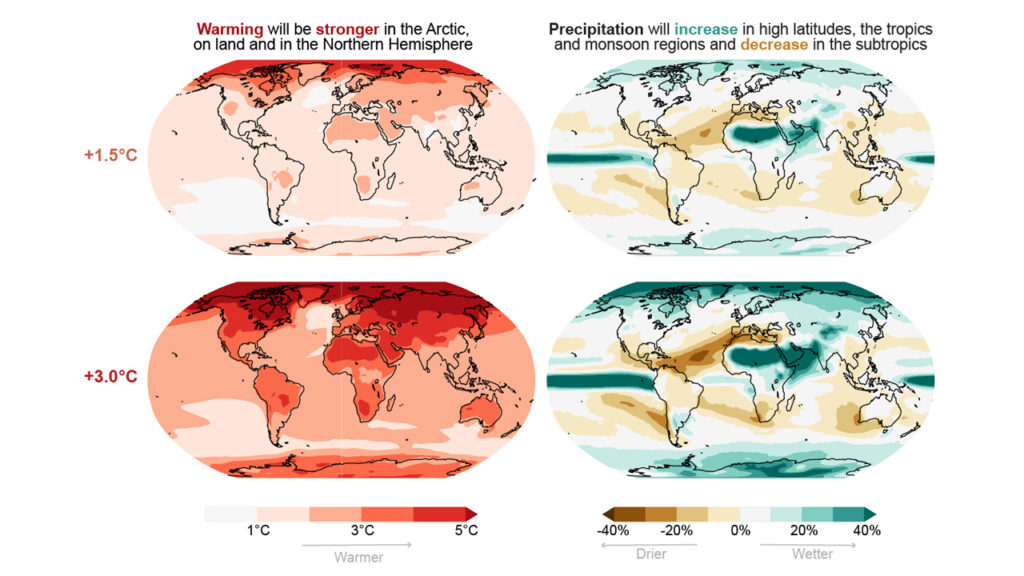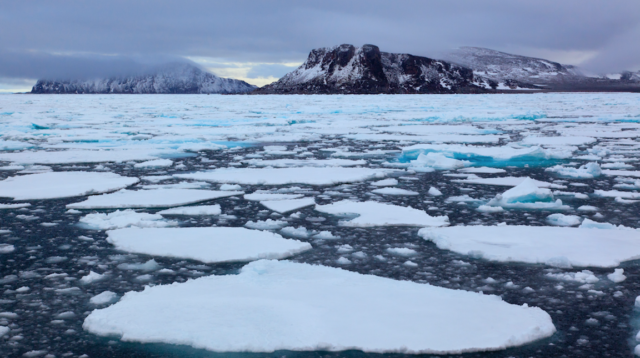Global warming is unequivocal. On Monday (Aug. 9), the United Nations Intergovernmental Panel on Climate Change (IPCC), the UN body for evaluating climate science, released the first installment of the IPCC’s Sixth Assessment Report in a virtual press event.
In the report, the authors reviewed more than 14,000 studies that:
- document evidence of climate change
- record the influence of human activities on global warming; and
- model predictions of our future should we fail to reduce carbon dioxide and other greenhouse gas emissions that are driving climate change today.
Related Content: Australia’s Devastating Wildfires Seen From Space
Global Warming is Unequivocal
Under all the future emissions scenarios that were considered in the report, “surface temperatures will continue to increase until at least the mid-century,” the authors wrote.
“The fact that the IPCC has agreed — with the agreement of all 195 member countries — that it is unequivocal that human activity is causing climate change, is the strongest statement that the IPCC has ever made,” said Ko Barrett, IPCC Vice Chair and Senior Advisor for Climate at the National Oceanic and Atmospheric Administration (NOAA).
The IPCC reports on the scientific evidence of how Earth’s climate is changing and how human activity is driving those changes. The group summarizes the findings for global leaders and policy makers.
More than 200 scientists authored and edited the new IPCC report. They found that human activity, primarily the production of atmospheric CO2 from the burning of fossil fuels causes climate change.
Small, Incremental Changes
Carbon dioxide levels have increased more than they’ve been in the past 2 million years. Arctic Sea ice is at its lowest point in 1,000 years. Glacier retreat is at the highest level for the past 2,000 years.
Seas levels rose more in the past century than they did in the 3,000 years prior to that. Coastal floodings have doubled since the 1960s reported Bob Kopp, an IPCC co-author and director of the Rutgers Institute of Earth, Ocean and Atmospheric Sciences.
Heat waves on land and in the oceans are also more common now, occurring five times more often than they did in the 1950s. Severe droughts that used to take place once per decade have increased in frequency by 70%. This number could double.
“With every additional increment of global warming, changes in extremes continue to become larger,” the authors wrote. For example, extreme heat waves that used to happen once per decade now occur about three times in 10 years. With an increase of just 0.9 F (0.5 C) in global average temperatures, such heat waves would happen four times per decade, and resulting temperatures would be nearly 3.6 F (2 C) hotter. Record-breaking heavy rainfall events and droughts would similarly increase in frequency and intensity, should Earth continue to warm, the scientists reported.

No turning back
“There’s no going back”, Barrett said at the IPCC briefing. Global warm is unequivocal and inevitable.
However, some of the changes that we’re now seeing can be slowed or even stopped in their tracks. However, global temperature averages could not rise more than 2.7 F above pre-Industrial levels, Barrett said. Without large-scale reductions in emissions that are currently warming the planet, that goal “will be beyond reach.”
“Achieving global net zero CO2 emissions is a requirement for stabilizing CO2-induced global surface temperature increase.”
Future scenarios with very low emissions offer the most promising outcomes. People would notice results within 20 years, according to the report. While it’s still possible to head off many of climate change’s most dire impacts, “it really requires unprecedented transformational change [with] rapid and immediate reduction of greenhouse gas emissions to net zero by 2050,” Barrett noted.



